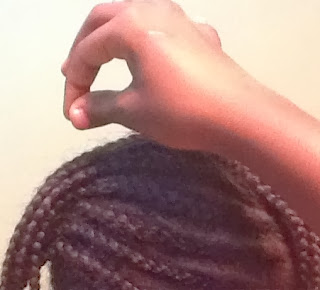There is a general agreement among sociologists and psychologists that the face, voice, body posture and hand gestures, forecast to outside observers what people will do next. By extension children or rather "well brought up" children are expected to be able to read every of their parents' facial expression, voice tone, body posture and hand gesture and use such as a guide as to what is expected of them in any given situation. When we were growing up, most of the communication between us and our parents were non- verbal and woe betide you if you were not able to decipher / decode any of such messages because you would pay dearly for it. In fact our parents did little or no talking to us, except when we are being reprimanded for one wrong doing or the other, all the talking they did was to adults like themselves.
The human face serves many functions, it makes ones behaviour more predictable and understandable to others and thus improves communication, it can be used to supplement verbal communication, it can also communicate information on its own without the use of verbal communication, that is replace verbal communication. Psychologists have classified six facial expressions which correspond to ; happiness, sadness, surprise, fear, disgust and anger. All these are however not the expressions we have in mind when talking about facial expression's use as a parenting skill.
People of South West Nigeria, especially the Yoruba people have all types of facial expressions or/ and hand gestures and body postures to fit every single situation or incidence. Lets now proceed to examine some of them and their interpretation
1. Rolling of eyes/ eyeing; used to express disgust, annoyance,and exasperation.
2. Shrugging of shoulders; means "I don't care" or "I don't know or I am not interested"
3. Clapping of hands three times and simultaneously placing each hand over the other starting with the right followed by the left. " Wonders shall never end " or " see me, see trouble" or is simply used to express amazement.
4. Loud clearing of throat; this is used to shut somebody up without making it so obvious and can also be used to express disbelief at someone.
5. Pointing with your nose and raising your upper lip to touch your nose at the same time, known in Yoruba language as "yinmu", is used to express disbelief, disgust or simply to say; " I give up", reminds me of the way majority of Nigerians feel about government projects and policies, "yinmu" is a very apt expression.
 |
| "Yinmu".... T2 indeed an "omo oju" |
6. Keeping very quite all of a sudden and refusing to respond in any way whatsoever and keeping a blank face; used to signify end of a conversation or that a particular topic is a no-go area.
7. Wagging of the right fore finger in a person's face; Indicates warning and the wagging will be as severe as the warning is meant to be.
8. Shaking of the head from left to right or vice versa, note that this is different from nodding(nodding is an up and down movement) signifies the hopelessness of a case. It could also mean an emphatic no.
9. Laughing loudly all of a sudden and also declaring that you are indeed laughing as a response to a particular situation, question, news or information( remember Obasanjo " I they laugh o", the reply that he gave when he was told that Atiku would be succeeding him as President of Nigeria) this "mouth gesture" is used to express derision or the ridiculousness of a situation or of some particular news.
 |
| Obasanjo; "I dey laugh o" |
10. Raising up and shaking two clenched fists at the same time. This expresses praise, applause and kudos.
11. Twisting and interlocking the two hands together and intertwining the ten fingers. This signifies appeal or request , petition, imploring.
12. Putting of the right fore finger in the left cheek and proceeding to make a loud noise three times. Signifies swearing that what was said is indeed true.
13. Biting the tip of your fore finger or the angle of a curved fore finger; Expresses regret.
14. Glaring hard at someone; Shows displeasure and annoyance
15. Using the tip of a curved fore finger to tap the side of your forehead. Means the person(s) being addressed need their heads examined.
16. Tapping of the middle finger and thumb across the head three times. This means that something will happen only over your dead body. This hand gesture has however acquired one more meaning especially at this "Pentecostal times" to mean "back to sender"
18. Opening your hand wide with the palm showing and all fingers separated at somebody is Yoruba's way of saying "f**k you" or "to h*ll with you". Note that it is not parents that use this particular hand gesture on their children, but it is expected that a child should recognise an insult if he sees one and promptly report to elders.
19. Add your own.
The Yoruba classify children into two when it comes to the topic under discussion; "omo oju", a child that understands facial expression, and "omo oro",a child that understands only verbal expression, the former is generally preferred to the latter and is also considered to be better brought up and better behaved.
A child that can decode all these expressions accurately and promptly follow by taking approprate action is on her way to a blissful childhood.
How many of these gestures are you familiar with?





Thoroughly enjoyed this.
ReplyDeleteYou might want to have a look at the other posts
DeleteThanks my brother!
ReplyDelete